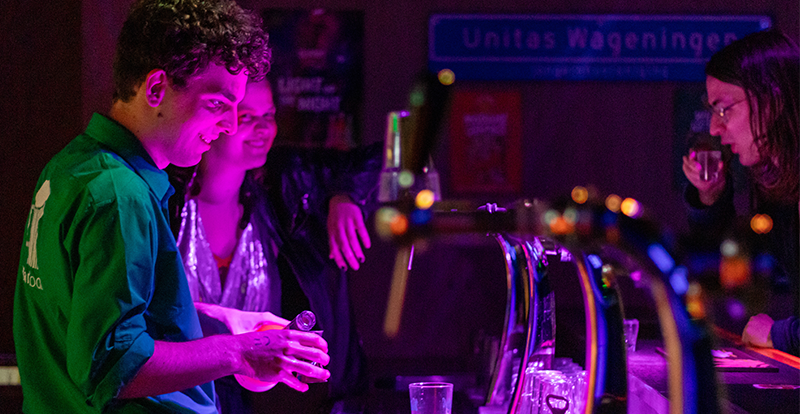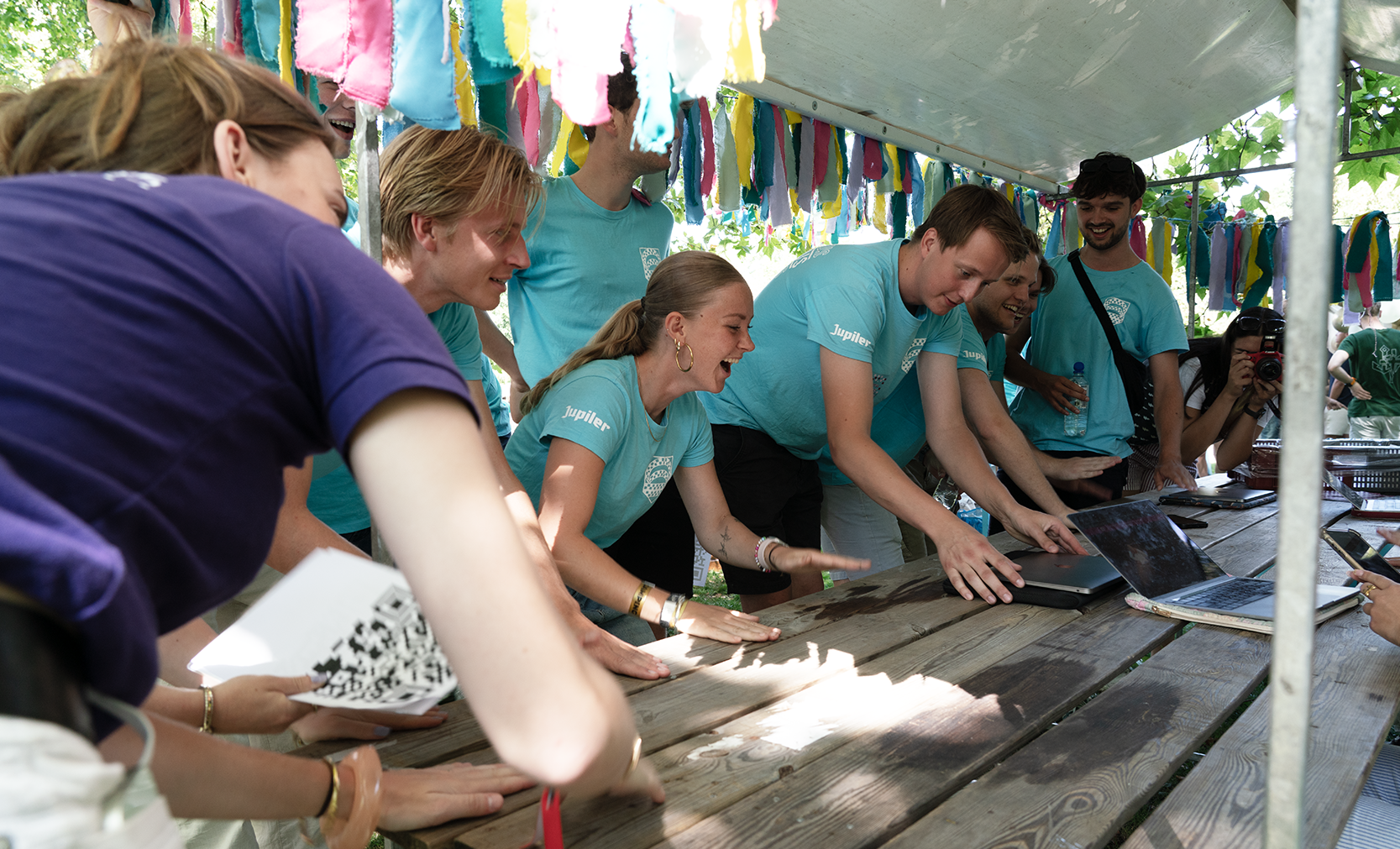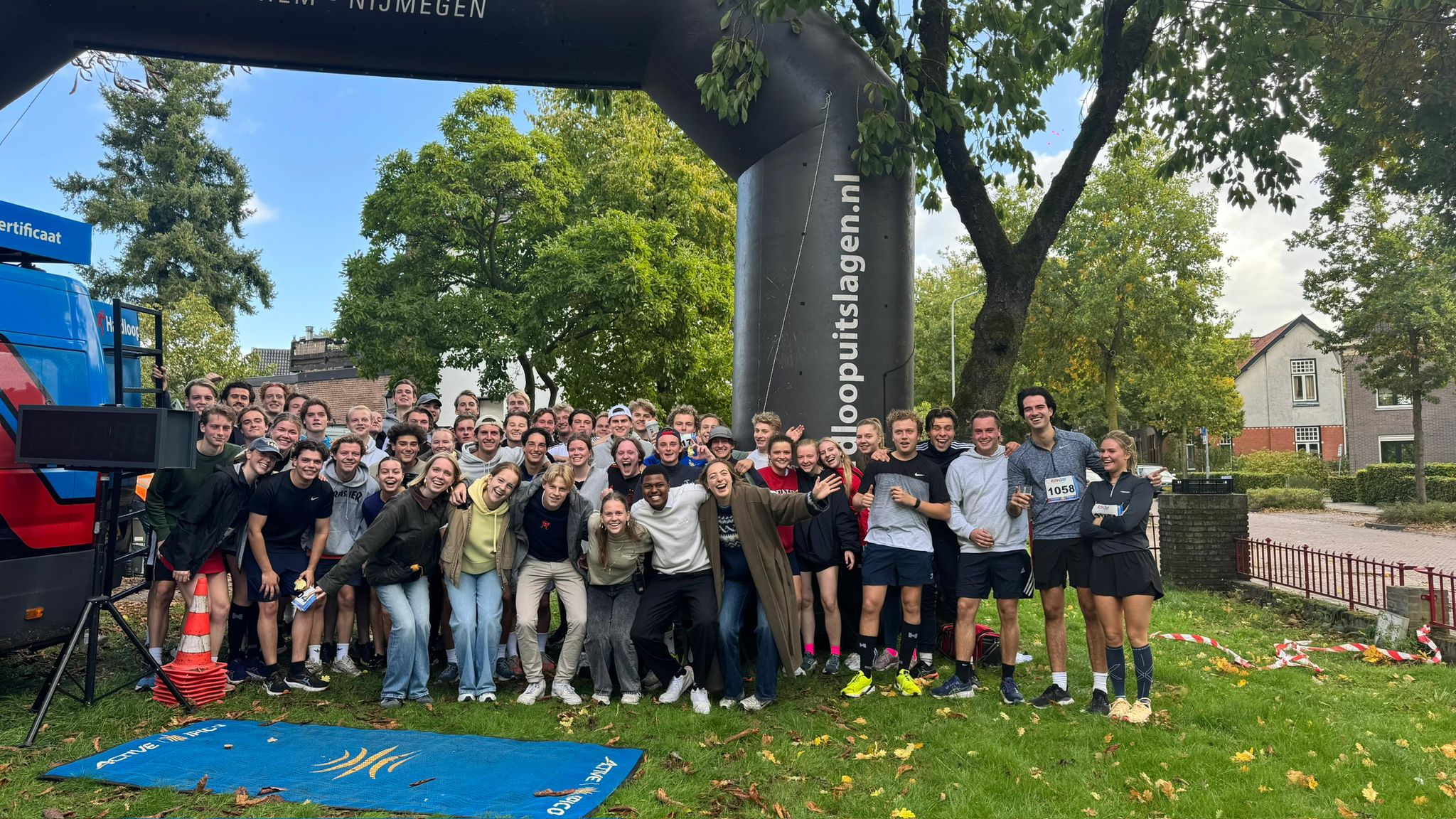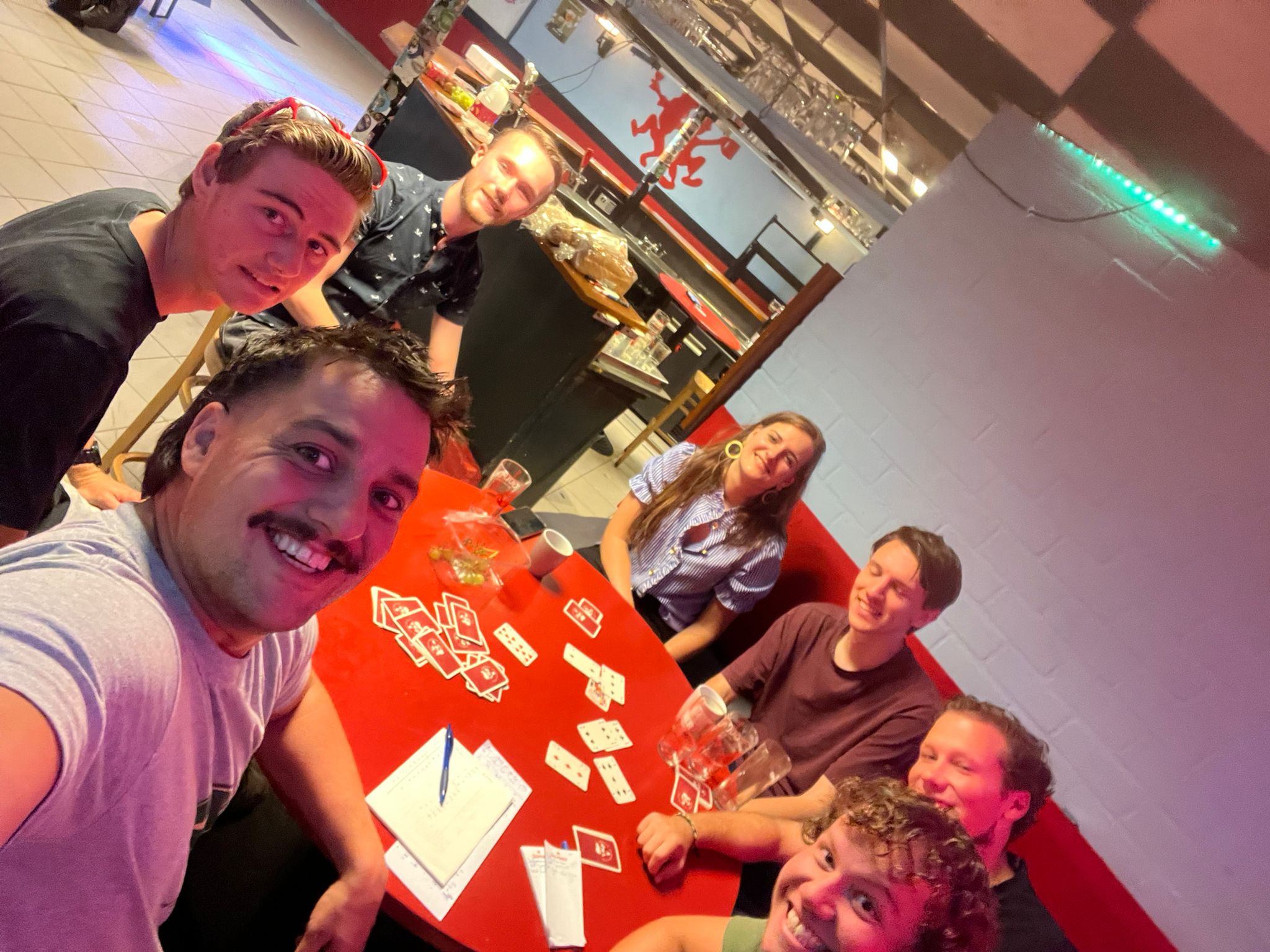In spite of the additional members recruited to student societies during the Covid time, interest in serving on committees and boards fell. Yet they are crucial for a thriving student society. A year and a half after the last restrictive Covid measures were lifted, enthusiasm for being actively involved seems to be on the rise.
‘If you’re a member of a society, you opt to be on a committee or a board because you want to achieve something and because it’s fun,’ says Madelon van Vuure, chair of the Wageningen Chamber of Associations (WKvK). She has regular contact with Wageningen student societies and is up to date on what’s going on in them. ‘In Covid times, you couldn’t do much, and you couldn’t even go out for a drink together. So why would you sign up for a committee?’
Once the Covid measures were lifted, interest in committees began to increase. ‘It happened gradually,’ says Van Vuure. ‘At first everyone wanted to be free and have no commitments, but interest quickly grew, especially in committee positions. They are a bit less time-consuming than positions on boards.’ Filling boards remained difficult. ‘A fulltime year on a board means pausing your studies. People feel that’s a lot, and that feeling increased after Covid. After all the restrictions, students wanted to enjoy their freedom without any commitments. It’s noticeable that filling board positions is still harder, in study associations, sports associations and student societies alike.’
Rising interest
Student societies usually manage to recruit board members but it’s harder than it used to be. ‘Before Covid, you often had a pool of 14 or 15 candidates that members could vote for to form a seven-strong board,’ says Van Vuure. ‘Now the period in which people members can come forward as candidates often has to be extended, and there are societies that have to manage with fewer board members for a year. But even though it sometimes takes a bit longer to fill a board, there has been progress. And it’s good to see that.’
One of the most frequently asked questions at the AID was: how many commitments are there? That’s the spirit of the times, rather
Unitas chair Niels van de Sande also sees a growing interest in active participation. ‘We’ve certainly had problems with getting motivated volunteers and the members from the two “Covid cohorts” are relatively less active in our society. Covid has had some quite long-lasting after-effects.’ But the members who joined last year and are now second-years are very enthusiastic, says Van de Sande. ‘Suddenly there’s a lot of interest, even for the normally less popular committees. For instance, there were six candidates for the security committee and three for the finance committee. Those are responsible tasks that new members are not often very keen on.’
Culture
How hard or easy it is to get boards and committees up to full strength has a lot to do with the society’s culture as well, thinks Jesse de Vries, chair of Nji-Sri. ‘At Nji-Sri, we have a farmers’ mentality: all shoulders to the plough, and organizing nice things without many resources. That’s why we don’t have much trouble filling board and committee positions. Of course, you sometimes have to approach people first and push a bit.’ But even at Nji-Sri, they’ve noticed that people are often reluctant to commit themselves initially. ‘One of the most frequently asked questions during the AID was: how many commitments are there? That’s the spirit of the times, rather.’
The club culture at W.S.V. Ceres revolves around participation too, says president Gijs van der Neut. ‘It starts during the AID and the VIT (the society’s introduction period, ed.). We explain that you don’t have a lot of commitments in Ceres, but we do give new members a nice introduction to the range of options. That way they are quicker to see how enjoyable and worthwhile it is to do other things alongside your degree programme, and to grow in other areas too.’ The society’s system helps a bit too, says Van der Neut. ‘Monday night is club night, for instance. The committees start their meetings around five thirty. Then all 20 committees are together in the bar. After that the fun starts and you go for a meal and a drink with your year group. You go home about 11 o’clock. That system is attractive.’
BarCo or FellisCo
Although there aren’t too many commitments, members of Ceres are expected to serve on a committee in their second year. Van der Neut: ‘You’re either on BarCo (the bar committee) or on FellisCo (the party and lighting committee).’ What that means is that second-years are responsible for bar duties and the Thursday parties at Ceres. Each shift is three hours and second-years work four shifts per period. ‘In fact, everyone enjoys doing that, but it’s necessary anyway to keep the society going,’ says Van der Neut. From that start, a lot of members go on to serve on other committees. Van der Neut: ‘It’s considered an honour to be on an important committee. By doing so, everyone wants to do their bit. In the end, the bar keeps running thanks to the members. For the members, by the members.’
Concern
Notwithstanding the increased interest, several of the chairs have one small reservation: there is concern about the Dutch Batchelor’s intake. Van der Neut: ‘That is the main target group for student societies, but recruitment seems to be falling. So we’re taking a critical look at which committees are vital for a thriving society. Because in the end, you have to be able to fill the committees.’

 The Unitas bar committee in action. Photo María Joaquina Acosta
The Unitas bar committee in action. Photo María Joaquina Acosta 

